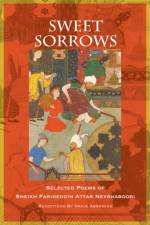- Selected Poems of Sheikh Farideddin Attar Neyshaboori
av Vraje Abramian
331
Sufism (esoteric Islam) has, in the last half century, become a respected spiritual tradition no longer limited to Islam or the Middle-East. Any responsible work of translation of Sufi literature from original sources, therefore, is a step in helping further the appreciation of the Sufi heritage in spirituality. For anyone interested in Sufism in particular, or mystical understanding in general, Attar's works are indispensable. His influence on later giants, such as the mystic poet Jalaleddin Rumi, is well documented. Born in 1119, Attar lived in infamously chaotic times when petty warlords never relented, and famine and disease were the order of the day. He was killed in 1221 during the utter destruction of his hometown of Rey at the hands of invading Mongol hoards. Despite outward circumstances, the value of Attar's influence as a beacon of light during these times cannot be overestimated. He always seems to be focused on his belief in basic human goodness. Attar insisted that the individual should concentrate on refining his or her sensitivities in order to escape ignorance and become worthy of being called a "human being." Many generations since Attar have taken refuge in his writings to strengthen their faith to choose what cannot be seen, over all that can. His writings also include stories about the lives of mystics who lived before and around his time, and in this sense he provides one of the few sources about their biographies, though his is popular rather than academic information. Attar is mostly known in the West for his Biographies of the Saints, and for Conference of the Birds; but he has also produced a number of other masterpieces well-known among lay persons and Sufi practitioners in Iran, and in cultures influenced by the Persian language. Sweet Sorrows is the first compilation of Attar's lesser-known works in English. The translator, Vraje Abramian, has selected 350 short verses that cover a wide range of Attar's poetic moods-from somewhat satirical and humorous to tender and heartbreaking. Background information on Attar, as well as an essay on the translator's task make this a fascinating and authoritative book. An Appendix contains a large selection of one of Attar's classics, Moseebat-nameh (The Book of Travails).

